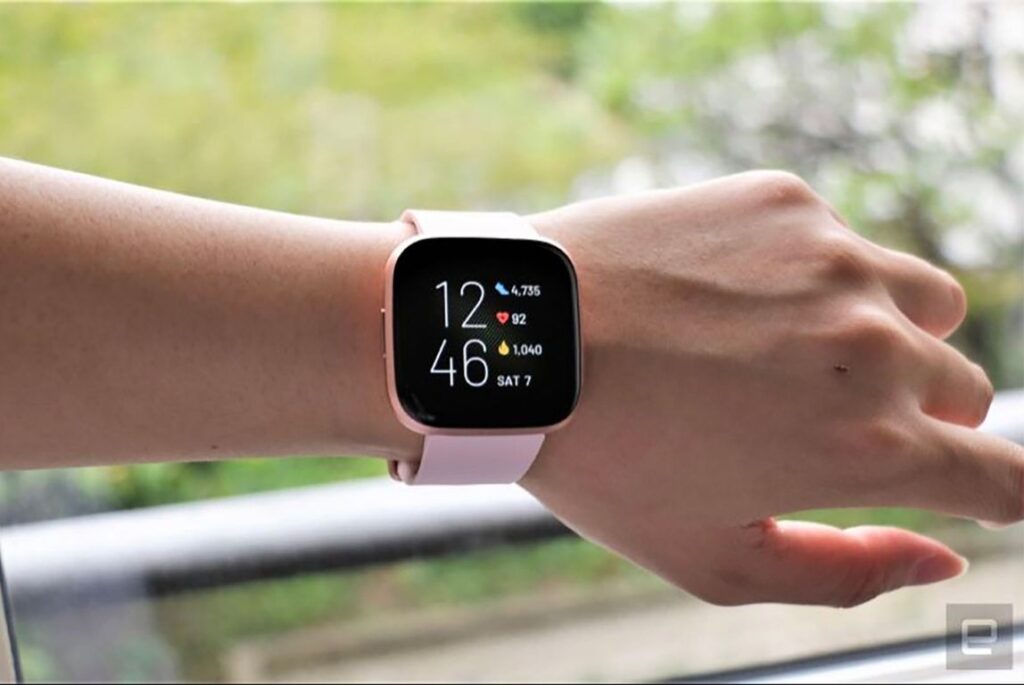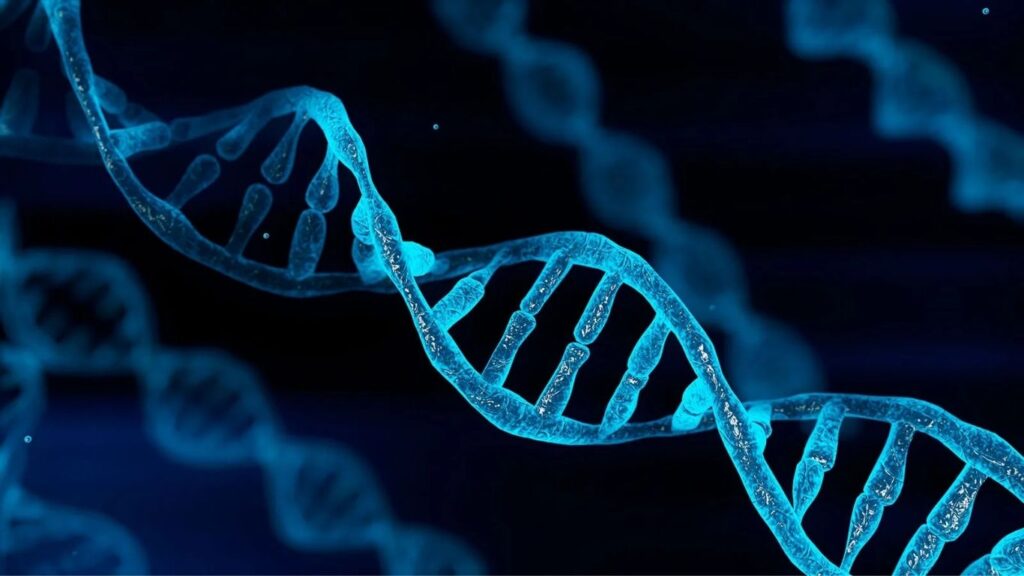In recent years, technology has dramatically transformed various aspects of our lives, from communication and entertainment to healthcare and fitness. This rapid advancement has brought innovative solutions to the forefront, making tasks more efficient and personalized. In this blog, we will explore how modern technology is revolutionizing weight loss and dieting. By examining cutting-edge tools and methods, we aim to inform readers about the latest advancements enhancing diet and fitness efforts, offering a glimpse into the future of weight management and overall well-being
Top 7 High-Tech Weight Loss Technology: Shaping the Future of Dieting
1. Wearable Technology

Wearable devices, such as fitness trackers and smartwatches, have become integral tools in modern weight loss and fitness regimens. These devices offer a range of features designed to monitor and enhance users’ health and activity levels. Popular models include the Apple Watch, Fitbit, and Garmin series, each providing comprehensive tracking capabilities.
Key features of these wearables include heart rate monitoring, which helps users maintain optimal workout intensity; calorie tracking, allowing for precise dietary planning; sleep analysis, offering insights into sleep quality and its impact on health; and activity level tracking, which monitors steps, distance, and overall physical activity.
The benefits of using wearable devices are substantial. They provide personalized feedback and real-time data, empowering users to make informed decisions about their diet and exercise routines. By offering continuous monitoring and insights, these devices help individuals stay motivated, set achievable goals, and track progress effectively, ultimately leading to better weight management and overall health.
2. Mobile Apps and Digital Platforms

The market for mobile apps dedicated to weight loss and dieting is diverse and continually expanding, offering users a wide range of tools to support their health goals. These apps fall into several categories, including calorie counters like MyFitnessPal, meal planners such as Yummly, and exercise trackers like Strava. Each type serves a specific purpose, catering to various aspects of diet and fitness management.
Functionality is a key strength of these apps. Many offer food scanning features, allowing users to quickly log meals by scanning barcodes. Recipe suggestions help users discover new, healthy meals tailored to their dietary preferences and goals. Additionally, community support features enable users to connect with others, share experiences, and find motivation through social interactions and group challenges.
The impact of these apps is significant, providing increased accessibility to detailed nutrition information and structured diet plans. This accessibility empowers users to make informed choices, adhere to their diet plans, and achieve better health outcomes through consistent monitoring and support.
3. Artificial Intelligence and Machine Learning

Artificial intelligence (AI) is revolutionizing the field of dieting with the advent of AI diet coaches, offering personalized diet plans based on individual health data. These virtual coaches analyze user information such as age, weight, activity level, and dietary preferences to create customized nutrition and exercise plans. By leveraging AI, users receive tailored guidance that aligns with their unique health profiles and goals.
Predictive analytics, a powerful feature of AI diet coaches, plays a crucial role in forecasting weight loss trends and identifying potential health issues before they arise. By analyzing patterns in user data, AI can predict how different dietary and exercise adjustments might impact weight loss progress, allowing for proactive adjustments to enhance outcomes.
The customization capabilities of AI diet coaches extend beyond basic personalization. They adapt to changing user preferences and needs, offering dynamic recommendations that evolve with the user’s lifestyle and progress. This level of personalization ensures that users remain engaged and motivated, ultimately leading to more effective and sustainable weight management.
4. Virtual Reality and Augmented Reality

Virtual reality (VR) and augmented reality (AR) are transforming the fitness and nutrition landscape by offering immersive and interactive experiences. Immersive workouts using VR provide engaging exercise routines that transport users to various virtual environments, from scenic landscapes to intense workout simulations. Apps like Supernatural and Beat Saber turn exercise into an enjoyable adventure, making it easier for users to stay motivated and consistent with their fitness routines.
AR technology is equally impactful, particularly in the realm of nutrition. By visualizing portion sizes and healthy food choices, AR apps help users make informed dietary decisions. For instance, AR can overlay visual guides onto real-world food items, demonstrating proper portion sizes or suggesting healthier alternatives. This interactive approach makes it easier for individuals to understand and implement nutritional advice in their daily lives.
The impact on motivation is significant, as these technologies enhance user engagement and adherence to diet and fitness plans. The novelty and interactivity of VR and AR keep users excited and invested in their health journeys, leading to better long-term outcomes. By making fitness and nutrition more accessible and enjoyable, VR and AR help users achieve their weight loss goals more effectively.
5. Genetic Testing and Personalized Nutrition

DNA testing kits have become a game-changer in personalized nutrition, with companies like 23andMe and Ancestry offering insights based on genetic makeup. These kits analyze a user’s DNA to reveal genetic predispositions related to diet, metabolism, and overall health. By understanding one’s genetic profile, individuals can make more informed decisions about their diet and lifestyle.
Nutrigenomics, the study of how nutrition interacts with genes, is at the forefront of this personalized approach. It examines how specific nutrients affect gene expression and how genetic variations influence individual responses to different foods. This science allows for a deeper understanding of how diet can optimize health and prevent disease based on one’s unique genetic blueprint.
Customization is the key benefit of DNA-based nutrition. Diet plans can be tailored to align with an individual’s genetic profile, considering factors like metabolism, nutrient absorption, and food sensitivities. This personalized approach ensures that dietary recommendations are more effective and sustainable, leading to optimal health outcomes and more efficient weight management.
6. Smart Kitchen Appliances

Innovations in smart kitchen appliances are revolutionizing the way we approach healthy eating and weight management. Smart scales, for instance, provide precise measurements and sync with nutrition apps to track calorie and nutrient intake effortlessly. Connected fridges, like those from Samsung and LG, can monitor food inventory, suggest recipes based on available ingredients, and even create shopping lists. Intelligent cooking devices, such as smart ovens and multicookers, automate cooking processes, ensuring meals are prepared perfectly every time.
The convenience offered by these devices is unparalleled. Automating meal prep saves time and reduces the effort required to plan and cook healthy meals. With smart appliances, users can easily track their nutritional intake, make informed dietary choices, and adhere to their diet plans without hassle.
The benefits are clear: these innovations streamline healthy cooking and portion control, making it easier to maintain a balanced diet. By integrating technology into daily routines, users can achieve their weight loss goals more efficiently and sustainably, leading to improved overall health.
7. Online Support Groups and Communities

Innovations in smart kitchen appliances are revolutionizing the way we approach healthy eating and weight management. Smart scales, for instance, provide precise measurements and sync with nutrition apps to track calorie and nutrient intake effortlessly. Connected fridges, like those from Samsung and LG, can monitor food inventory, suggest recipes based on available ingredients, and even create shopping lists. Intelligent cooking devices, such as smart ovens and multicookers, automate cooking processes, ensuring meals are prepared perfectly every time.
The convenience offered by these devices is unparalleled. Automating meal prep saves time and reduces the effort required to plan and cook healthy meals. With smart appliances, users can easily track their nutritional intake, make informed dietary choices, and adhere to their diet plans without hassle.
The benefits are clear: these innovations streamline healthy cooking and portion control, making it easier to maintain a balanced diet. By integrating technology into daily routines, users can achieve their weight loss goals more efficiently and sustainably, leading to improved overall health.
Conclusion
The integration of advanced technology into dieting and weight loss is transforming how we approach our health and fitness goals. From wearable devices and mobile apps to AI diet coaches and smart kitchen appliances, these innovations offer personalized, efficient, and engaging solutions for managing weight. Virtual and augmented reality further enhance motivation and adherence to fitness plans, while DNA testing and nutrigenomics provide deeply customized dietary advice. Embracing these high-tech tools empowers individuals to make informed decisions, streamline their routines, and achieve sustainable health outcomes, heralding a new era in the future of dieting.
Also read: 8 Benefits of Including High-Protein Diet for Weight Loss
